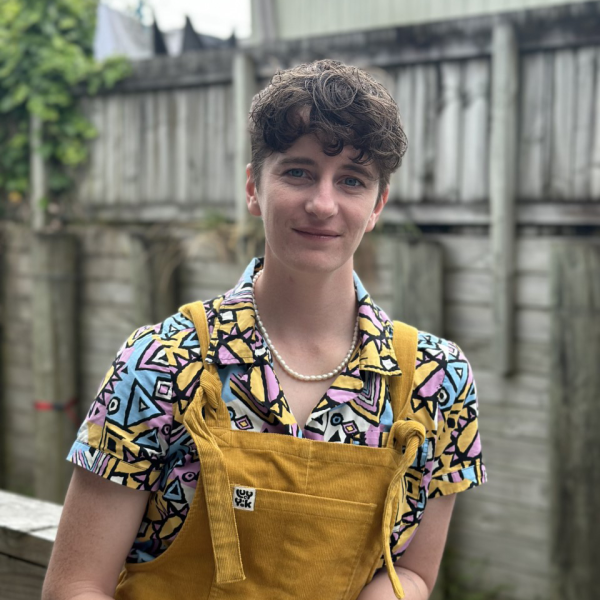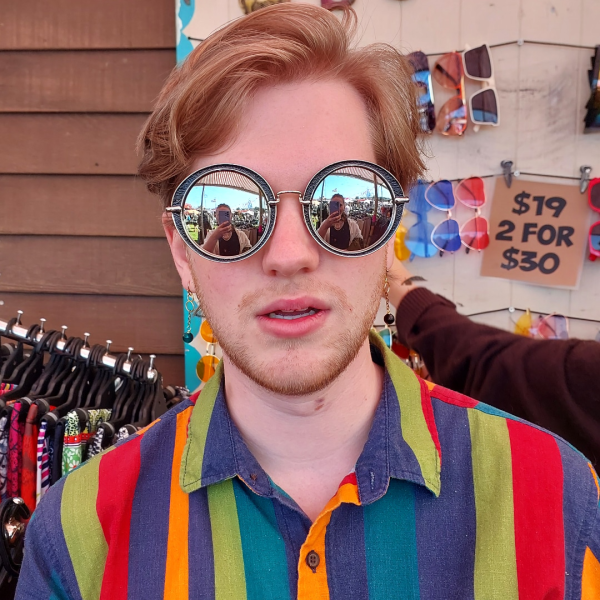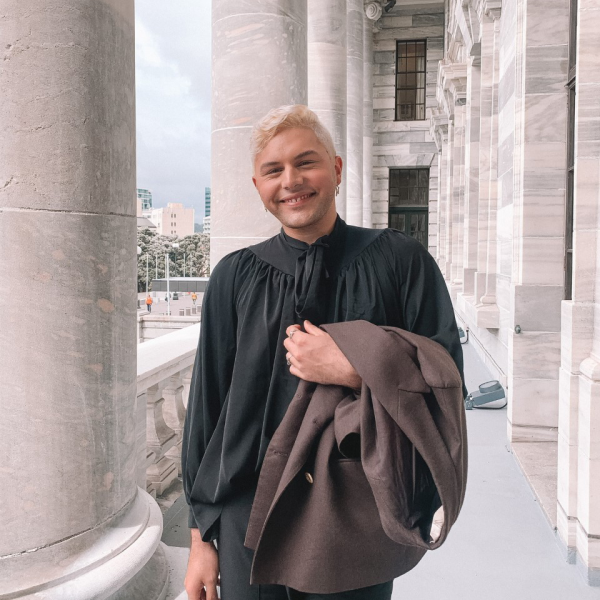Content warning: This article discusses assault, homophobia, bullying and mental health.
“What are you?” Those were the words hurled at Zoe Findlay - at the supermarket - by two men.
“One of them put their hands on my chest to see if I had breasts and pushed me over and stomped on my phone.”
“Luckily, a guy saw what happened and came over and stopped them.”
But this isn’t the first time Zoe has experienced homophobic abuse in Taupō.
A few weeks before that, the 28-year-old was walking to their car after work when a group of men yelled at them.
“Are you a boy or a girl? What’s in your pants?”, they yelled as they pushed Zoe to the ground.
People in the rainbow communities say homophobia attacks aren’t rare in small town New Zealand
Zoe grew up in Timaru, a small town in the South Island, and didn’t know anyone who was queer.
At the age of 20, they came out as lesbian.
They lost friends and were surrounded by homophobia and hate.
Moving to Taupō two and a half years ago for work, they say the situation hasn’t really changed.

Zoe Findlay says they face homophobic attacks because people can fit themƒ into a box. Photo: Supplied.
Censoring to feel safe
Instead of starting the day by wearing whatever they feel like, each morning Zoe has to assess how resilient they feel before they decide on an outfit.
“If I feel like I can’t handle it I think about how my gender expression might be perceived,” Zoe - who is non binary - says.
“Do I need to water myself down? Should I get changed? Do I need to take someone with me? Because I’m always alone when I get targeted.”
“Everyone deserves to feel safe when they leave the house. But because people can't neatly fit me into a box, they get uncomfortable and that’s why the abuse happens,” they say.
Despite owning a home and having a meaningful job working with youth, Zoe wants to leave Taupō and move to Auckland or Wellington to feel safe.
And they aren’t the only one.
A recent survey from the University of Auckland found one in eight rainbow people had moved towns or cities to feel safer.
Of the 4784 rainbow people surveyed, one in six didn’t feel safe at their school or university and almost two-thirds (64%) said they had thought about suicide in the last 12 months.
Zoe helps run rainbow youth groups and events and says one of the only things keeping them in Taupō is wanting to support other young queer people living there.
“Queer people are leaving to feel safe, but then there is not that visibility you need to change the homophobia that is happening in the small towns. It’s a no-win situation.”

Arlo says their flamboyant personality makes them a target. Photo: Supplied
‘Leaving was freeing’
Arlo’s memories of their high school experience in Te Anau - a small rural town near Fiordland - was getting their head pushed in a toilet, having grass shoved in their mouth and feeling ostracised by every group in school.
They say their flamboyant expression made them a walking target for homophobic attacks.
“I got sick of it and by the time I was 16, I managed to find a homestay in Dunedin and moved away from home.”
They have lived in Dunedin ever since, the 20-year-old says.
Leaving felt freeing, they say.
“Because I am autistic it was especially draining having to put on a front constantly and dull myself down. When I could finally be normal around people I noticed I felt calm for the first time and my sleep was better because of it.”
When Arlo reflects on their upbringing in Te Anau they can see how the bullying warped their mindset.
“My friends and I were indoctrinated into right-wing Youtube videos because I thought I needed to ingrain these ideas in my brain to be more normal.
“It’s a relief to know how much this has changed since meeting other people in the rainbow community and actually being able to feel safe here in Dunedin.”

Jasaiah Claydon-Wade says being Māori and Takatāpui feels like a double whammy of oppression. Photo: Supplied.
‘A town that is set back in the 1950s’
Jasaiah Claydon-Wade can also relate to this feeling of freedom once he moved away from Ashburton.
As a young boy, Jasaiah knew he had a feminine side and as he got older he says he quickly realised Ashburton was not a town that accommodated for takatāpui.
“It feels like a town that is set back in the 1950’s with its old ways of thinking and doing things,” he says.
“Going to high school I would be harassed and called gay slurs. People always had something to say about me.”
Jasaiah says this sent him into a spiral of confusion, anger, and depression.
“It hurt. I never understood why it was such a big problem for a man to love another man.”
“I was constantly trying to seek validation from people to find out why people thought this way. But I was searching for answers from the wrong places,” Jasaiah says.
For Jasaiah, being Māori and takatāpui in a town where more than 80% of the population are Pākehā felt like a double whammy of oppression.
“For a long time, I tried to play the typical heterosexual Ashburton man who plays rugby and wears Swanndri and stubbies to fit in. But I couldn’t conform because that wasn’t who I was.”
“I didn’t feel like I belonged anywhere,” he says.
Since starting a new life in Wellington, Jasaiah’s fashion sense changed because they finally feel safe to express their feminine side.
“I've never felt so sure of myself and where I stand in the world,” he says
“It’s even helped me have a lot more open and comfortable conversations with my own whānau about being gay because I understand myself and my identity and I can express that to them.”
Jasaiah says: “It's really important for our Takatāpui whānau to understand they won't be surrounded by those people forever. They will come out of it.
“And once you do, everything will start to make sense.”
Background of top image: Country Road - stock photo. Supplied: Getty Images.
Where to get help:
- 1737: The nationwide, 24/7 mental health support line. Call or text 1737 to speak to a trained counsellor.
- Suicide Crisis Line: Free call 0508 TAUTOKO or 0508 828 865. Nationwide 24/7 support line operated by experienced counsellors with advanced suicide prevention training.
- Youthline: Free call 0800 376 633, free text 234. Nationwide service focused on supporting young people.
- OUTLine NZ: Freephone 0800 OUTLINE (0800 688 5463). National service that helps LGBTIQ+ New Zealanders access support, information and a sense of community.
More stories:
Only gay in the village
Scott and Daegan live in rural Southland and look after Scott's family farm - they are literally the only gays in the village.
NZ’s public health system is failing trans people
Thousands of NZers need gender-affirming chest surgeries. The Govt provided 10 in 2021.
I'm straight but I give guys blow jobs as a side hustle
What it's like being a male sex worker